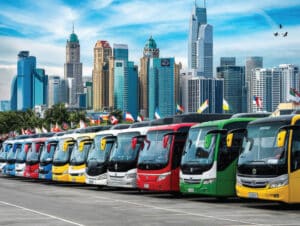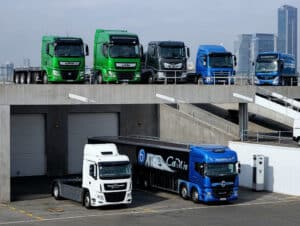In today’s rapidly evolving business landscape, sustainability has become a critical focus for commercial vehicle businesses. With escalating concerns about climate change and environmental impact, there is a growing recognition of the importance of adopting sustainable practices.
This shift is not solely driven by regulatory requirements but also by changing consumer expectations and the imperative to future-proof operations.
The importance of sustainability
Sustainability in this context extends beyond mere carbon emission reduction. It entails a comprehensive approach to managing environmental, social, and economic impacts. Embracing sustainability offers truck and bus businesses a myriad of advantages, including:
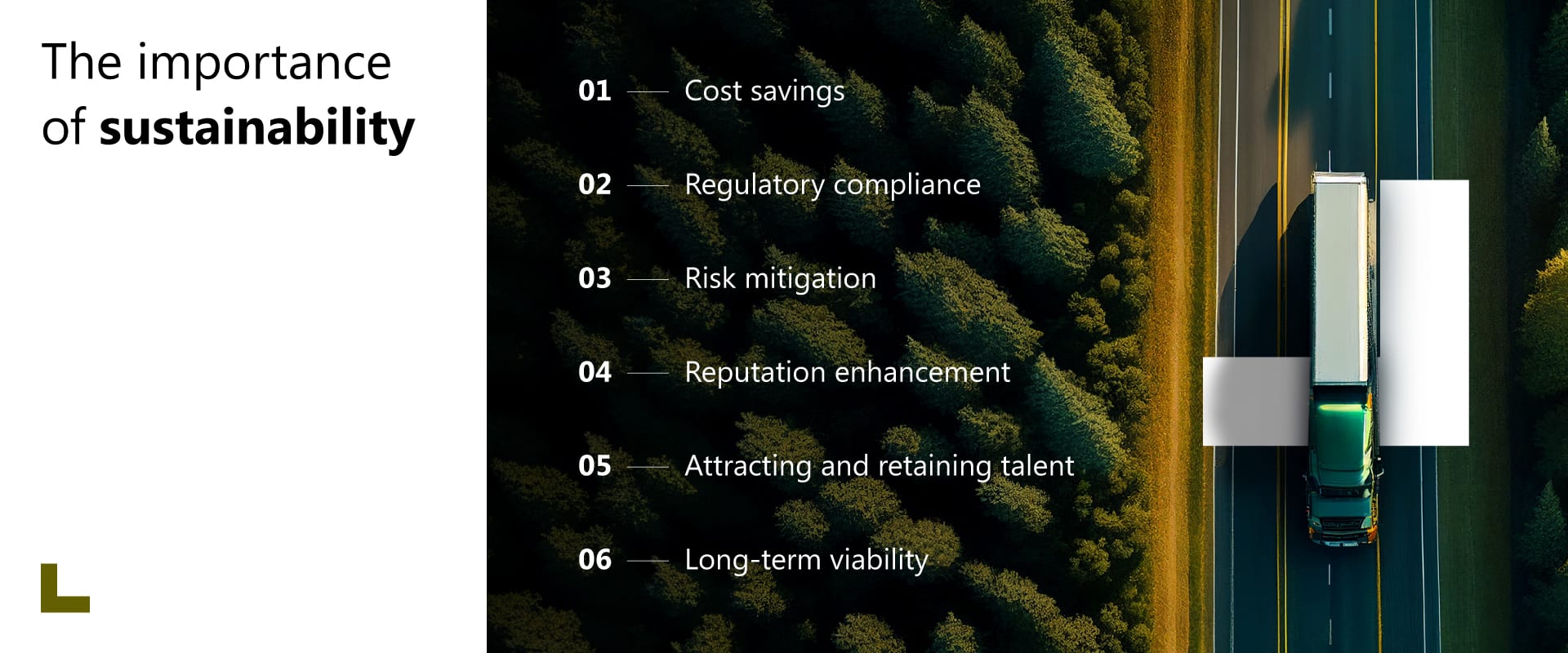
Cost savings: Adopting sustainable practices such as using electric or hybrid vehicles can lead to significant cost savings in the long run, through reduced fuel and maintenance costs.
Regulatory compliance: Governments around the world are implementing stricter regulations aimed at reducing emissions and promoting sustainable practices. By embracing sustainability, businesses can ensure they remain compliant with these regulations.
Risk mitigation: Climate change and environmental issues pose significant risks to businesses. By adopting sustainable practices, businesses can help mitigate these risks and ensure long-term viability.
Reputation enhancement: Embracing eco-practices can enhance a business’s reputation. Customers, investors, and other stakeholders are increasingly looking to support businesses that demonstrate a commitment to sustainability. A positive reputation can lead to increased brand loyalty and a competitive advantage in the market.
Attracting and retaining talent: Employees increasingly seek to work for companies prioritizing sustainability. By embracing eco-practices, businesses can attract and retain top talent, reducing recruitment and training costs.
Long-term viability: Embracing environmentally friendly processes is essential for the long-term viability of commercial vehicle businesses. As the world shifts towards a more sustainable future, businesses that fail to adapt may need help to remain competitive.
The consequences of not embracing sustainability efforts
Failing to embrace greener practices can have serious consequences for truck and bus businesses. As the world shifts towards a more sustainable future, businesses that do not adapt may find themselves at a significant disadvantage including:

Losing competitive edge: Businesses that fail to embrace greener practices may be at a competitive disadvantage, as customers increasingly prefer sustainable products and services.
Increased costs: Failing to adopt sustainable practices can lead to higher operating costs, as businesses may face fines for non-compliance with regulations or incur higher fuel and maintenance costs.
Reputational damage: In today’s interconnected world, news of environmental violations or unsustainable practices can spread rapidly, leading to reputational damage that can be difficult to repair.
How A365 can help meet sustainability goals
A365 can play a vital role in helping truck and bus businesses meet their green goals.
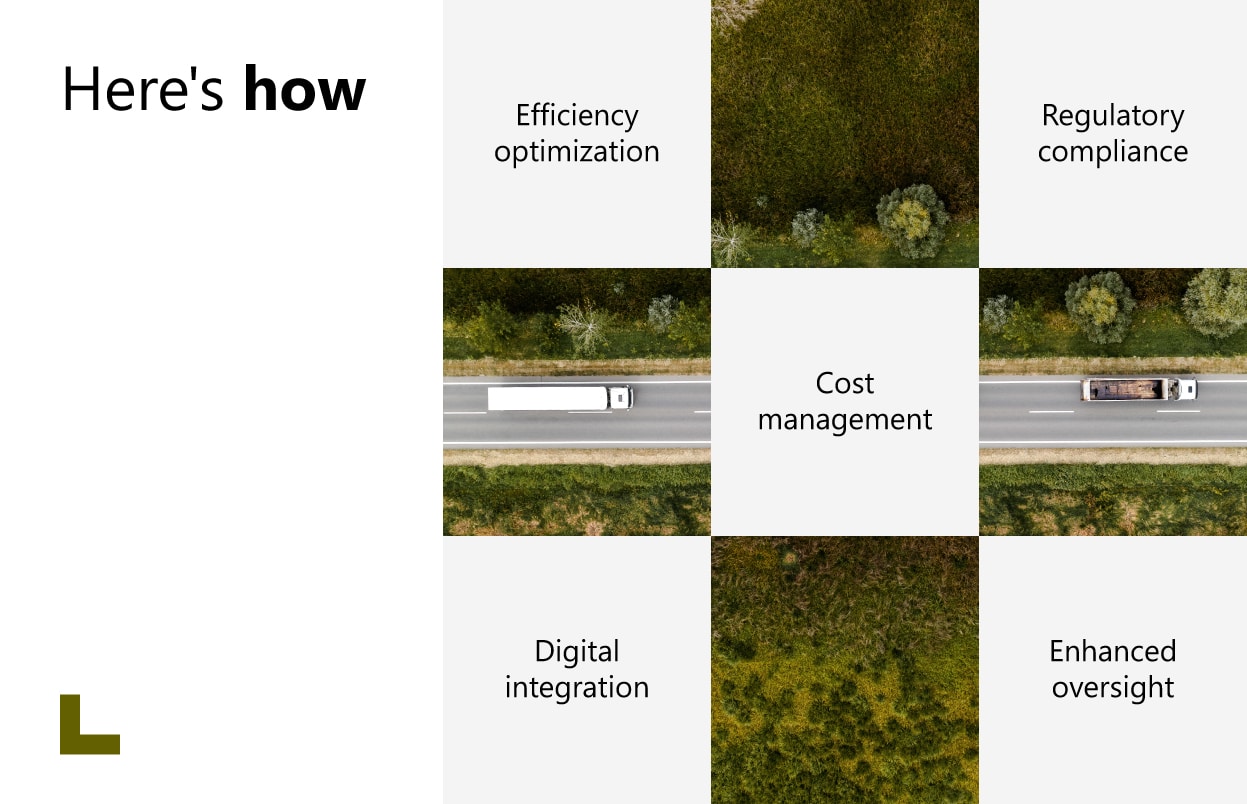
Digital integration: A365 provides digital integration, resulting in improved data quality, enhanced oversight, and seamless infrastructure that coexists with other business systems. This integration enables businesses to track and analyze their eco-conscious efforts more effectively.
Efficiency optimization: By leveraging Microsoft Copilot and Microsoft Power Platform, A365 helps businesses optimize their operations for efficiency, reducing fuel consumption and emissions.
Regulatory compliance: A365 can help businesses stay compliant with environmental regulations by providing tools for tracking and reporting on sustainability metrics.
Cost management: A365’s cost management capabilities can help businesses identify opportunities for cost savings, such as through more efficient route planning or vehicle maintenance.
Enhanced oversight: A365 provides enhanced oversight of operations, enabling businesses to identify areas where sustainability improvements can be made and track the impact of these changes over time.
Brands that have jumped aboard the sustainability bandwagon
Global commercial vehicle brands like Scania, Isuzu, and more are progressively dedicated to sustainable practices, meticulously documenting and reporting their advancements. This commitment reflects a notable transition towards more environmentally friendly practices within the industry. Some brands and their sustainability objectives include:
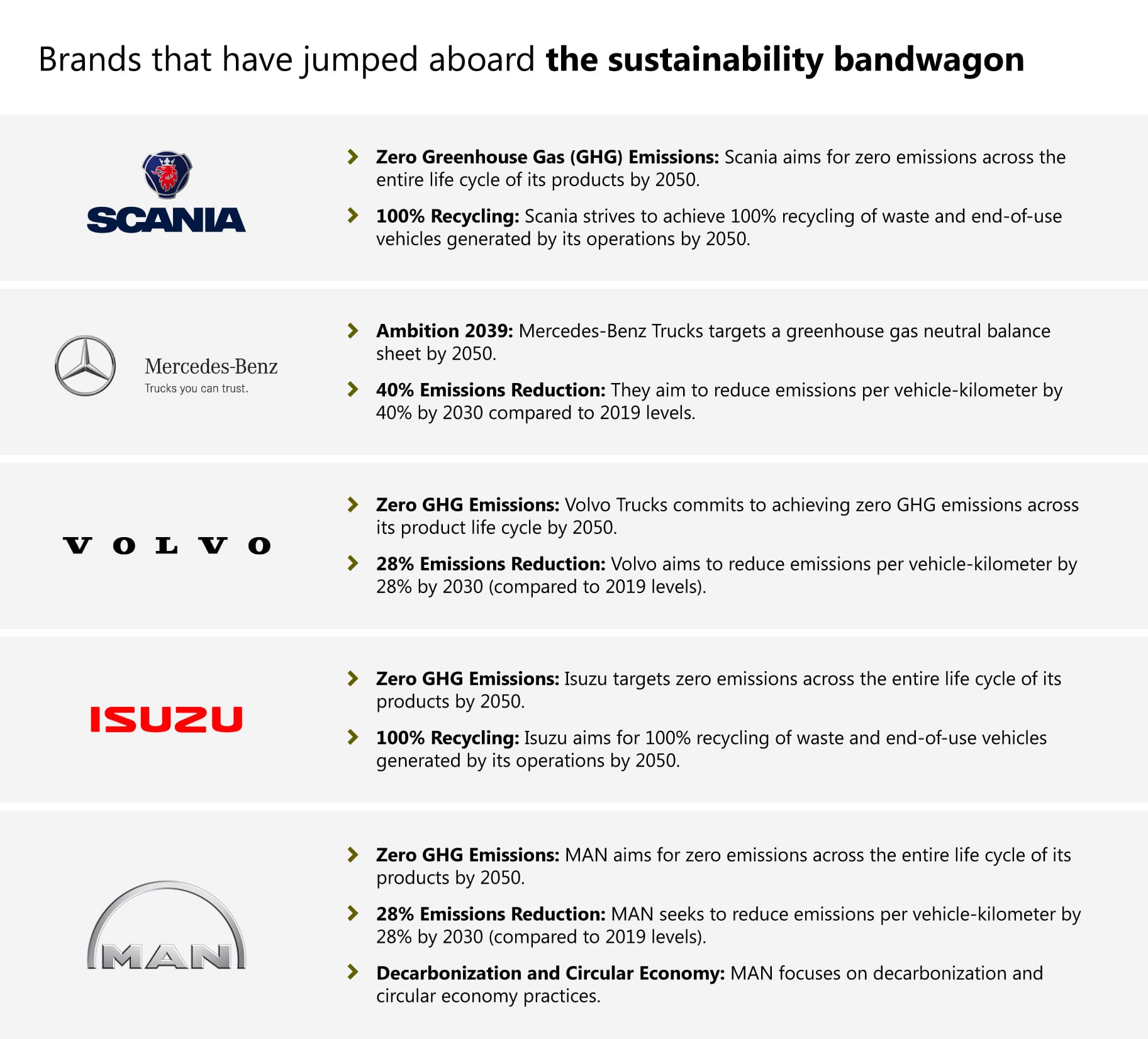
Sustainability has transcended buzzword status to become a crucial business imperative for truck and bus companies. Embracing it utilizing tools like A365 is essential for staying relevant and competitive. This approach not only yields various benefits but also ensures alignment with evolving market demands in an ever-changing global landscape.
Take the first step towards a sustainable future with A365 today. Connect with us to find out how.





